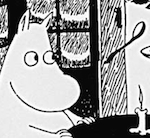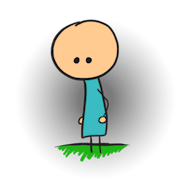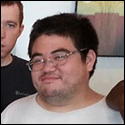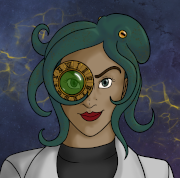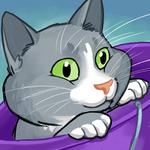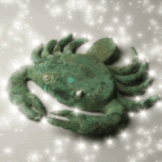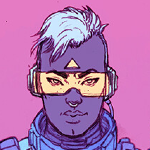|
Guiness13 posted:I just want to drop a general thanks to the posters in this thread. I just had my first story published in Under the Bed on fictionmagazines.com, and I'm stoked. I've absorbed a ton of advice here. I went back and read one of the first stories I wrote, and holy hell has there been progress. Congrats too, dude!
|
|
|
|

|
| # ? May 14, 2024 19:47 |
|
The Saddest Rhino posted:congrats dude! post the link when it's up because i like your writing This is it. Guiness13 posted:I just want to drop a general thanks to the posters in this thread. I just had my first story published in Under the Bed on fictionmagazines.com, and I'm stoked. I've absorbed a ton of advice here. I went back and read one of the first stories I wrote, and holy hell has there been progress. Looks like this is a good week for several people, well done.
|
|
|
|
Can I just the firstpub party? I got a short in Esquire Malaysia this month. $70, baby. Time to quit my day job and become a full time writer.
|
|
|
|
SurreptitiousMuffin posted:Can I just the firstpub party? I got a short in Esquire Malaysia this month. $70, baby. Time to quit my day job and become a full time writer. Spend all that money on whiskey and cigarettes and maybe a bad hat, otherwise you have to get a job again. What I mean by that is, congratulations! Can we read it online somewhere soon?
|
|
|
|
Bobby Deluxe posted:My method, please do not steal: Overwined posted:For me the an opening line that draws people in is the easy part. It's all those words (so many words) afterwards that are my downfall. These are both astonishingly similar to my method in that they involve procrastination, stagnation, and unwarranted bragging. I like to go the extra mile and blog about things I know gently caress-all about and lie about the myriad publishers I'm in talks with which gives me the convenient inability to post excerpts or even talk about the general concept. It works pretty well, I have more tumblr followers than I do words in my manuscript. Broenheim posted:heres my sure fire method to writing words Will using a fountain pen make me more likely to write the Great (Nationality) Novel? Sitting Here posted:step 1.5: ahahaahaha I'm going to watch star trek and play video games! no one can stop me or judge me for this because I've already deduced that I'm terrible and my writing is terrible and life is suffering! writing is just another way to pass the time before death! I never really got into anime....UNTIL NOW! that's right, creative drive, you're stuck inside an anime fan. how does it feel. SERIOUSLY THOUGH: I Have no idea, I've only ever finished one long-form thing in my life and have failed out of like half my TDs. So my first thing would probably be make time to write. I've gone back to pen and paper lately because I don't have a laptop and I can take those everywhere. I'm doing heavy outlining on a few things in notebooks and we will see if that helps. Honestly, If you're looking at awesome productivity methods look into SCRUM and AGILE development in terms of computer programming/software development. There's a lot of methodology that I think slides into creative writing and can help make you feel like you're making progress.
|
|
|
|
yeah nvm
take the moon fucked around with this message at 05:00 on Oct 6, 2015 |
|
|
|
Idk, for some people, some things work while others don't. like, TD works really well for me since it gives me a deadline, some arbitrary (or if i'm Also read too, that's useful too. But also write.
|
|
|
|
As someone who's wrestled with my own demons and won, I can confirm. Just loving write is the only advice worth a drat. I set aside an hour in my calendar app to repeat every day. I could move that hour to any time, but I wasn't allowed to delete it. If I'd butted that hour against midnight, I'd have to drop everything and write. It's not like I had anything important to do that late at night, so I had no excuse not to. This removed the first mental hurdle: the question of whether or not I was going to write that day. The first month sucked. I'd sit in front of a blank screen completely unprepared. I'd type any old poo poo just to say I was writing. So I'd write about why I wasn't writing, how much it sucked, and what I could do to avoid this lovely situation in the future. I started outlining a day ahead to make sure I always had something planned. I didn't always follow it, but it removed the next mental hurdle: not knowing what to write. After getting through the first lovely month, the second one went a lot smoother. I knew I was going to write and what I was going to write. The next mental hurdle was worrying about whether my poo poo was any good or not. I got over that by powering through. I'd have bad days where I'd only dribble out 200 words or so and they were all crap. So instead of spending the rest of the hour beating my head against lovely prose or a plot dead end, I'd switch back to outlining. I'd work out how the story wasn't working and how I wanted it to go instead. The next day I'd have an awesome writing session that more than made up for the lovely one before. By powering through the lovely day, I'd prepped my subconscious to work out the story problem. I learned you need to write bad words to make the good ones come out. So even my worst days were worth something so long as I was writing. I had to up my game from there to pull 20k a month, and that was by not thinking about that goal but placing smaller ones before me. I broke that into 5k a week, and that felt more doable. It's less that 1000 words/day. It also doesn't take much more than my original hour/day. It averages out to more like an hour and a half. It also accounts for lovely writing days because it has just enough days for me to make them up.
|
|
|
|
Since writing that, i've been managing a fairly steady 1k a day, minimum. If I can keep this pace going i'll have a first draft in about 2 months, month & a half if i'm lucky. My next hurdle is pacing. I've got to get one of those mckee style structures and break it up over the course of about 60k, so I know roughly at which wordcounts I should be at which story breakpoints. I don't want to plan too far ahead though, because i'm enjoying writing by the seat of my pants and past experience has shown i tend to then agonise over how to get to the next plot point and don't write anything. But having a rough idea of 'ok, round about now there needs to be an act 1 crisis' might actually help me when I get stuck.
|
|
|
|
Mapping story beats to your word count seems counter-intuitive. I was obsessing over whether it would be long enough, or too long, but the best advice I've ever received is to just write and not care about the word count. Act structure and sections of the book sure, but not the word count. That's what editing's for, and I ended up at a square 100k words anyways.
|
|
|
|
change my name posted:Mapping story beats to your word count seems counter-intuitive. I was obsessing over whether it would be long enough, or too long, but the best advice I've ever received is to just write and not care about the word count. Act structure and sections of the book sure, but not the word count. That's what editing's for, and I ended up at a square 100k words anyways. I've obsessively mapped this TD entry and I feel way more confident about story structure.
|
|
|
|
Quick question, how have people found agents to submit manuscripts too? I've seen the Twitter prompt list, which is great, but I don't think the stickied thread had a lot of info in it. I have a bunch of friends in the industry I'm going to ask for recommendations, but how have you guys gone about it?
|
|
|
|
change my name posted:Quick question, how have people found agents to submit manuscripts too? I've seen the Twitter prompt list, which is great, but I don't think the stickied thread had a lot of info in it. I have a bunch of friends in the industry I'm going to ask for recommendations, but how have you guys gone about it? Look up books that are similar to your book (or just books that you admire), Google the agents who repped them. Then check their websites to be sure they're soliciting new clients, and follow their guidelines exactly.
|
|
|
|
General Battuta posted:Look up books that are similar to your book (or just books that you admire), Google the agents who repped them. Then check their websites to be sure they're soliciting new clients, and follow their guidelines exactly. Hey GB, I actually have a question about those guidelines, specifically with regards to the specific parts you should send. A number of agents I've seen in my own research have had instructions along the lines of, "Please send us the first [X] chapters of your manuscript." I've always been a little confused as to what this means with regards to prologues. In your experience, do agents typically prefer you include the prologue as one of your submitted chapters or do they want the literal "Chapter 1; Chapter 2; Chapter 3"? I really feel like I'm overthinking this aspect of the submission process but it's something that vexes me whenever I see it. Obviously when their instructions are, "Please send the first 50 pages", this becomes a nonissue.
|
|
|
|
Cpt. Mahatma Gandhi posted:Hey GB, I actually have a question about those guidelines, specifically with regards to the specific parts you should send. A number of agents I've seen in my own research have had instructions along the lines of, "Please send us the first [X] chapters of your manuscript." I've always been a little confused as to what this means with regards to prologues. In your experience, do agents typically prefer you include the prologue as one of your submitted chapters or do they want the literal "Chapter 1; Chapter 2; Chapter 3"? I really feel like I'm overthinking this aspect of the submission process but it's something that vexes me whenever I see it. Prologues are included in whatever document you send, so if they want three chapters, that's your prologue and Chapters 1 & 2. Also, as a sidenote: agents really, really hate prologues. As for how to find agents, I use QueryTracker. I find agents or agencies I'm interested in, double check if they're legitimate through their website and the Absolutewrite forums, and go from there. I like the QT Pro since it lets me keep track of everything when my GMail box is a complete mess (i.e. who I've sent do, when they replied, did I send a partial, etc.) It also keeps track of response times and whatnot. That said, I've had very little luck with requests. My beta readers and people I've pitched to love it, and what little personalized feedback I've gotten has been positive, so I'm guessing the issue is my query letter(s), which is a whooole other beast to tackle. I've been sending and sending this year without much progress and am losing hope.  e: BookEnds Literary sums it up better than I could: quote:If your prologue is truly integral to the story, then there should be no question that you should include that in any submission to the agent. If you feel that you should or could eliminate the prologue when sending pages or chapters to the agent, then my suggestion is to look more carefully to see if you need the prologue at all. Axel Serenity fucked around with this message at 03:53 on Oct 12, 2015 |
|
|
|
Never send in prologues unless they specifically say it's okay. My own experience with reading people's prologues (as a beta/slush reader) is that they do nothing especially if it only sets up worldbuilding/background history. I have not read a(n unpublished) prologue I enjoyed and for one case, we nearly rejected the manuscript because of how terrible it was.
|
|
|
|
Thanks, I kinda had a feeling prologues generally weren't well received and haven't been including it when soliciting agents. The novel I'm currently editing doesn't even have one, so it won't be an issue. For me, I've used http://www.agentquery.com/ to find agents and it's worked out well (minus the rejections of course, but hey, that's part of the game).
|
|
|
|
I have a terrible story with an even terribler prologue that adds nothing to the story, but I would like to set up a bit of worldbuilding and maybe introduce the antagonists before the story actually starts, something as a teaser to get the reader interested in the story. Would a short story-style thing work?
|
|
|
|
"Read this story I'm in," he said, smoking a cigarette in a cool fashion. "I agree, it's really good and interesting," she replied. Then they boned. youre welcome
|
|
|
|
spectres of autism posted:"Read this story I'm in," he said, smoking a cigarette in a cool fashion. stop stealing my thunderdome entries spectres of autism (just kidding, there are no robots in this)
|
|
|
|
Screaming Idiot posted:I have a terrible story with an even terribler prologue that adds nothing to the story, but I would like to set up a bit of worldbuilding and maybe introduce the antagonists before the story actually starts, something as a teaser to get the reader interested in the story. Would a short story-style thing work? Write a better story with a good first chapter that gets the reader interested the story.
|
|
|
|
Screaming Idiot posted:I have a terrible story with an even terribler prologue that adds nothing to the story, but I would like to set up a bit of worldbuilding and maybe introduce the antagonists before the story actually starts, something as a teaser to get the reader interested in the story. Would a short story-style thing work? That's your chapter one
|
|
|
|
Cpt. Mahatma Gandhi posted:
 "multi-generational' = 1 hit.
|
|
|
|
Defenestration posted:I searched "multigenerational" as that's my novel. 0 results. "It's like Cutting for Stone, but in space!" (Try another relevant category and narrow it down from there?)
|
|
|
|
Defenestration posted:I searched "multigenerational" as that's my novel. 0 results. 100 years of solitude?
|
|
|
|
crabrock posted:100 years of solitude?
|
|
|
|
Just a heads up, A Public Space is doing an Emerging Writers Fellowship with three open slots: http://apublicspace.org/blog/detail/the_2016_aps_emerging_writer_fellowships If you get picked you get a mentorship, some cash, and an optional residency. There is no entry fee and it's all handled through Submittable, which is easy as hell to use and anyone who submits stuff for publication is probably already familiar with it. Just in case any goons out there feel like giving it a shot!
|
|
|
|
change my name posted:Quick question, how have people found agents to submit manuscripts too? I've seen the Twitter prompt list, which is great, but I don't think the stickied thread had a lot of info in it. I have a bunch of friends in the industry I'm going to ask for recommendations, but how have you guys gone about it? I'm a miserable failure at making time to write so I don't have firsthand knowledge of finding an agent. I do follow Writer's Digest and a few other Lit sites on twitter and they are ALWAYS tweeting about agents looking for new clients.
|
|
|
|
I have a problem. Most of the crits I've been getting lately in Thunderdome are along the lines of "Your words are good, but your Plot is Not." The first part is nice, I guess, but I'm not writing poetry. There has to be something more to a story than pretty words and I seem to be bad at it. It seems like the most common complaints are "I don't care about your character" or "the plot is boring, nothing happens." How do people write sympathetic characters and compelling series of events? This seems like one of those cases where I can read things and tell good examples from bad, but in-the-moment writing uses a completely different skillset.
|
|
|
|
clear goal + conflict, and character flaws. also doing something to humanize your character is good. i don't really like the whole "character does something clumsy within 5 seconds of introduction" if helped, but thats one of the cheapest tricks in the book. make them fail at something really quickly immediately says to your reader "this character isnt infallible and failure is now on the table" basically. goal and conflict is just "i want thing, but x is stopping me". you'll notice most of my success in thunderdome entirely comes from the fact that i can poo poo out plots and i arguably have the worst prose so pretend my advice is useful
|
|
|
|
I have a lot of trouble with plot, too. In the dome I've been trying to keep it really really basic, but I still struggle. I'm writing a longer short story using Dan Harmon's guidelines - They're really clear, and seem like a great place to start. Muffin gets the credit for bringing these to my attention. http://channel101.wikia.com/wiki/Story_Structure_101:_Super_Basic_Shit
|
|
|
|
newtestleper posted:I have a lot of trouble with plot, too. In the dome I've been trying to keep it really really basic, but I still struggle. Seconding the helpfulness of this. I've been using it for a long project I'm outlining and I feel much better about this plot than my other novel attempts.
|
|
|
|
Love that series. ravenkult wrote a couple of articles up on litreactor.com about character interaction/brainstorming that I'm determined to try out: https://litreactor.com/columns/brainstorm-your-next-novel-with-fiasco-part-1
|
|
|
|
would anyone mind reading the first piece of creative writing I've really ever done, or tell me where to ask! it's a little contextually inspired by the refugee crisis in Europe https://drive.google.com/file/d/0B_P_OHW_YonKR3Nwd3JjRXFpWHM/view
|
|
|
|
Fuschia tude posted:I have a problem. Most of the crits I've been getting lately in Thunderdome are along the lines of "Your words are good, but your Plot is Not." The first part is nice, I guess, but I'm not writing poetry. There has to be something more to a story than pretty words and I seem to be bad at it. Plot: I think I've summed up plot differently about 10 different times and 10 different ways in the past 2 pages, honestly. And I stand by every single one of them. And all of the ones every other person has linked. And the ones all the other great writers about writing have written. Thousands of words about how to write a plot have been written thousands of times over and over again. Do a google search, for the love of god. Always do a google search. Praise god, our technological savior. On the other hand, we do always love talking about what we have learned. So there is that. My current idea of plot: 1) a real character who wants something but can't have it 2) tries to get it 3) and makes things waaaaaay worse 4) conquers a series of increasing difficult situations 5) half-learns a little bit about love (j/k about himself) 6) faces the 2nd worst bad guy, but can't integrate whatever he half-learned about love (himself) so fails 7) realizes he's a loving moron for not actually learning his stupid lesson that was obvious to the reader 8) faces the real bad guy and is about to fail miserably, remembers that lesson about love (himself) recovers 9) succeeds 10) Gets what he really wanted, etc. etc. Or doesn't, because the real point is always the way the character changes. If you are writing literary fiction, then ignore everything, it's all dialogue.* AUGH WTF IS A REAL CHARACTER???? Soooooooooo the post above also asked about "sympathetic characters" and I think that's a pretty good starting place, but compelling characters and sympathetic characters are different. A compelling character is necessary. A sympathetic character is not. A sympathetic character is easier, in my opinion, and also better in probably 95% of stories if not more. Sometimes a story demands a non-sympathetic character and you have to deal with that. God help us if you render such a beast as well as Nabokov, because then everyone will think he was really a sympathetic character and... Anyway. I really cannot stress enough how important characters are, especially in flash fiction. Nine times out of ten, an engaging character or two are going to be your ticket(s) to a good story. The other time itís going to be either putting together a delightfully clever plot which is exciting enough to keep the reader engaged (still much easier with a good anchor character) or quickly sketching a delightfully interesting world (also going to be better with a good anchor character). The "secret" to all good characters is detail. Good detail not bullshit detail. GOOD DETAIL REVEALS CHARACTERS AS COMPLEX PEOPLE Not as just "Sympathetic Characters" or as "Necessary to Plot." uhhhhhhh, so I recall I may have made a post in the past quoting a bunch of examples of physical details of character building, and i might just quote that and then make some commentary about using similar techniques re: making characters to build on the rest of what I say below. But other than that, details, details, details, I guess. The main thing that brings characters to life is always going to be details. Not random bullshit details that you make up to make them "unique" or whatever--I hope you know what I mean--but the real, closely observed details of humanity, that make people what they are. I think I made an awkward post about this earlier, referencing my mom, who I love, but who I borrowed some annoying traits from to create a horrible overbearing mother that I think was kind of effective. Because that's what you do. You steal details. You never say "Oliver had an overbearing Mom." Or--I mean, maybe you do. Lots of successful stories say stuff like that. But I still think it's better if you can just recall that time someone laid their hand on your stomach saying "boy or girl" and you said "what?" and was repeated like three times until they finally said "oh you just need to lose some weight" and then you remember that every time someone offers you their seat on the subway. All the things you observe in life are what makes your stories real. Not the exact "write what you know" in the pedantic prick interpretation, but all the things you see and hear and smell. That pregnant woman on the train, who is sweating, and no one is giving up their seat. But maybe it's just me, and I'm fat and I have a hangover. Or maybe you're unsure if it's a pregnant person or a fat person with a hangover and you don't want to be offensive. Or maybe you're me me and someone's offering you a seat and it's humiliating because you know they think you're pregnant but you're hungover but you really want to sit down. Do you see? My "New" "Cool" Theory Of Dimensional Characters: One dimensional characters: 1) Exist purely for plot. He wants something; he declares he wants it; he moves unerringly towards it, as long as that moves the plot forward, though he may randomly deviate from that plan, if the plot demands it. Nearly always boring. Either entirely predictable and if not, awkwardly inconsistent. Frequently an excuse for the author to write clever dialogue or cool action scenes. ALWAYS BAD. Possible exception is comedy, but even comedy is improved by having at least two dimensional characters. 2) Have a single goal. REVENGE. VICTORY. POWER. Think "Cartoon Villain." Two dimensional characters: 1) Two dimensional characters have a "secret self." People have a "self" and a "mask" they present to the world. Most of us have several masks. The more circles we move in, the more masks. I don't mean something as dramatic as different personalities, but we behave differently around family, friends, work colleagues, etc. We don't explicitly announce what we want. We subtly negotiate, hint, hedge our bets, etc. We protect ourselves. We lie. Mostly little lies. Withholding information -- maybe we don't consider it lying. But in any case, there's an internal world and an external world, and they are different. Two-dimensional characters embody and demonstrate this element of humanity. Classic example: they feel inadequate so they over-compensate -- whether that makes them an rear end in a top hat or just successful. Creating this second dimension of characters is one of the most fun parts of writing. This is when all your hard work of observation pays off!! And by that I mean all of your years of anxiously wondering what other people were thinking about your and what every word and gesture they made might mean. Or you know, just casual observation, no big deal. But seriously. This is when you tap into every single detail you have catalogued over your entire loving life, and why you will now meticulously catalog future observations -- or however else you do it -- so that in the future, when you are writing a story about a woman fresh out of law school feeling awkward at an interview, you can also remember that time your pantyhose didn't fit right and were inching down your butt as you were standing there and you really wanted to pull them up, but you couldn't because everyone would look at you funny. Anyway, this is when you get to contrast what is happening inside vs outside. You do think about what other people think, right? 2) Two Dimension Characters want more than one thing -- they want the money AND the girl; Want the money TO GET the girl. Sometimes this is actually interesting A good two-dimension character faces the ultimate test when two of his desires conflict with one another. (I don't think you can get much further than this in Flash Fiction except in exceptional stories) Three dimensional characters: 1) Three dimensional characters have a "denied self." People lie to others, but they also lie to themselves. As much as we carefully craft the image we present to the outside world, we carefully craft who we are to ourselves. Amusingly, I really learned this from romance novels, where this concept has to be over-dramatized to make two people who don't realize they love each other falling in love with each other the plot of a novel over and over again. Nonetheless, it is true. For example, the person who over-compensates rarely thinks "hey, I am over-compensating!" or if they do, they certainly don't think about ~why~ they overcompensate in the first place, oh no, that is all buried. I'm not saying you should go All Freudian All The Time, but people build personalities for themselves, and they believe in their own personalities. That whole thing in "plot" up above, where the protagonist learns a little bit about themselves? that's where they learn about the difference between their personality and their true self. You can only do that if you really have a three dimensional character. I'll say it again: That whole thing in "plot" up above, where the protagonist learns a little bit about themselves? That's where they learn about the difference between their personality and their true self. You can only do that if you really have a three dimensional character. 2) Three-dimensional characters want things that end up conflicting with each other. Oh, we all want more than one thing, of course, but mostly we want things that if we sat down and thought about it, we couldn't actually have -- not all of them. I want lots of money and also not to work at all (or not all that much). It's also taken me like years and years to be able to admit that. But let's talk about the Average American Dream. You want a Steady Job -- hahaha, okay, I actually can't do this without going on a political speech, but anyway, let's talk about a typical Fantasy Novel -- or just out-right Lord of the Rings -- Frodo wants to keep the ring but knows he needs to throw it into the fire. (Frodo never actually makes this decision, interestingly..?,) Luke Skywalker wants to avenge his dad and kill Darth Vader. 3) Three-dimensional characters have a value system. In addition to their goals, three-dimensional characters have some sort of moral system to which they ascribe that limit the paths they can take to achieve said goals. It messes them up all the time. This comes to it's ultimate conclusion in the below explanation of character-driven plots of value conflict. Also good is when a character has the opportunity to get something he wants, but only by violating his value system. THE BEST PLOT IS "CHARACTER-DRIVEN" You have probably heard the phrase "character-driven" before -- unfortunately, most of the times I've heard it was in the context of unappealing-to-me literary fiction.** Unfortunate because character-driven plot is ALWAYS the best plot. No matter what you are writing, no matter where you get your ideas from, I very firmly believe that in your final product, it should appear that your characters are driving the action forward. What does this mean? A Character's Values Must Collide With His Other Values! A character's desires lead to reasonable actions. A character's actions have reasonable consequences. If a character values Honesty and Loyalty to His Friends, the best plot will viciously pit those two values against each other. The protagonist will be forced to chose between publicly claiming he lied about something important, or sacrificing one of his friends up to something terrible. Which will he choose? As a writer, you have to carry the reader through that decision -- either convince them that it was the right decision (if it's at the end of the book), or making the character suffer and learn from making the wrong decision (middle of the book). Personally, I would always want the hero to choose friendship, because that is my personal value, but a good author can make me accept Honesty as the right choice -- that is what being a good author means. The possible endings to a character-driven plot: There are many, many different ways to end a story, obviously, but I'll sum up three main ways to end a book with what I consider the classic two-conflicting-desires plot. The options won't surprise you. 1) The Super Happy Ending: It turns out the hero can and does accomplish both goals! Despite the appearance that the goals were incompatible, through ~special skills~ the hero is able to make everything work out for the best in all ways! Don't get me wrong -- poo poo still went hella sideways along the way, but at the end of the day, both of the major goals, which seemed to be in conflict, were attained. 2) The Happy Ending: The hero accomplishes one of the goals, and that is enough because either he realize one goal was just a surrogate for the other goal (i.e. he just wanted money so he could get the girl) or one goal has become unnecessary or no longer desirable (he is no longer materialistic, all his debts have been forgiven, he needed to marry someone respectable to save the family name from scandal and he no longer gives a drat, etc. yeah, i read a lot of regency romances, whatever) 3) The(un)Satisfactory ending: the hero accomplishes the goal that satisfies the greater goal at his personal sacrifice. Thankfully, I haven't read many of these, because it would cause me great personal conflict. I am the worst? But, this should definitely be a thing. Arguably, I think Lord of the Rings probably fits into this category. There's not really any other possible happy ending for Frodo, necessarily, at the end, but nonetheless, at the end, our hero really isn't exactly happy or fulfilled, is he? But he's accomplished all for the world and for the realm? It's honestly wonderful, it's own way, and not something we will see, thankfully (in my opinion) practically ever again. In many ways, this almost deserves to be an unhappy ending. 4) The Unhappy Ending: The hero tries to achieve both endings and by failing to chose one, fails to achieve either (muahahahah?) * and footnotes ** Or the equivalent of Josh in your culture and/or social group *** Literary fiction is, I imagine, quite good. Probably I have no idea what "literary fiction" even is. I am using it as a catch-all term for contemporary fiction by award-winning authors that I feel like I should read, because it won awards, but that I just don't care for because I like genre fiction  I read Middlesex, and it was good, but I don't feel like reading everything else by Jeffrey Eugenides. Was that literary fiction? It wasn't all dialogue and I don't remember it having footnotes. Was House of Leaves literary fiction or horror? It did have a lot of footnotes. Do we want to discuss this? I read Middlesex, and it was good, but I don't feel like reading everything else by Jeffrey Eugenides. Was that literary fiction? It wasn't all dialogue and I don't remember it having footnotes. Was House of Leaves literary fiction or horror? It did have a lot of footnotes. Do we want to discuss this?**** WHY DOESN'T OUR LANGUAGE HAVE A GENDER NEUTRAL?! Dr. Kloctopussy fucked around with this message at 21:15 on Oct 25, 2015 |
|
|
|
Another A+ Kloctopost.
|
|
|
|
Holy poo poo Doc, that was great. Thanks!
|
|
|
|
Sooooo..... I guess this is in a way this is double empty quote of myself, but I'm going to excuse it by pointing out that most of it is quoting other authors. Fuscia asked about creating sympathetic characters, and I think that using detail to create characters is extremely important. I also think that physical detail and psychological (or whatever you want to call it) detail overlap quite a bit --probably on purpose, it's loving fiction after all. The following post was in response to a post about how to incorporate physical description of characters. Basically, without going through each of the following again, I think you could take them as not being about physical descriptions at all, so just do the substitutions yourself until I come through and do them maybe later. Dr. Kloctopussy posted:Alright, I made a big high-effort post in Mind Loving Owl's thread, but I figure we can all use it, so here it is: Dr. Kloctopussy fucked around with this message at 13:38 on Oct 25, 2015 |
|
|
|
Those are some sweet posts Doc! Thank you writing all that up. Also, the singular "they" is perfectly acceptable these days.
|
|
|
|
|

|
| # ? May 14, 2024 19:47 |
|
Dr. Kloctopussy posted:Plot:
|
|
|







